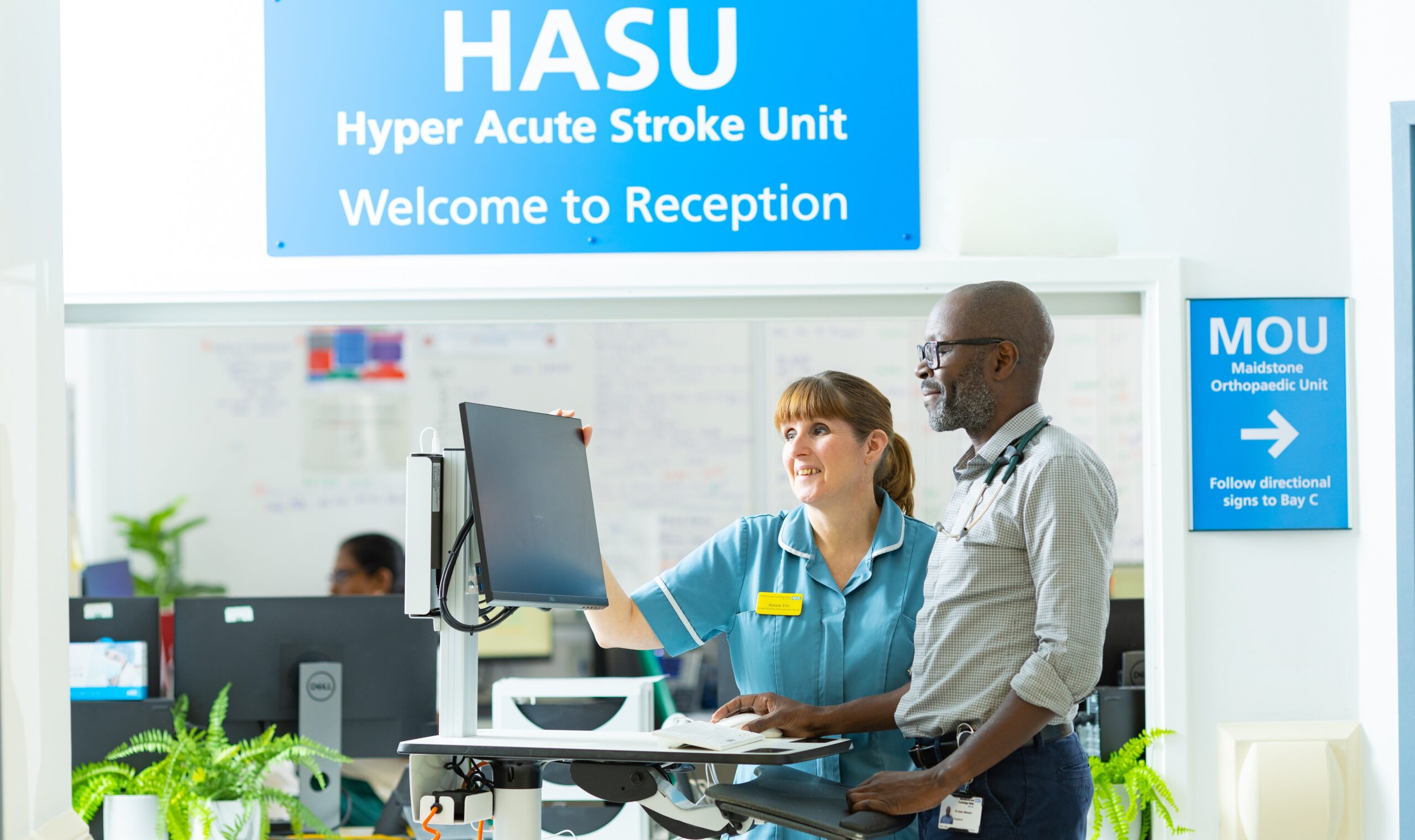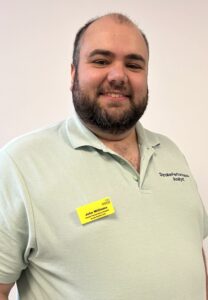
A digital simulation of the Stroke Unit is helping teams identify changes to improve patient care.
John Williams, Stroke Performance Analyst in the Stroke Unit at Maidstone Hospital, part of Maidstone and Tunbridge Wells NHS Trust (MTW), has completed training in data science that will enhance the service provided to patients.
The Health Service Modelling Associates (HSMA) programme, run by the National Institute for Health and Care Research (NIHR) Applied Research Collaboration South West Peninsula (PenARC), is aimed at staff in healthcare and the police service.
Accredited by the Association of Professional Healthcare Analysts, the course provides participants with the skills to become data scientists, and supports them in embedding those skills in their day-to-day work to develop services.
The programme took just over a year to complete, and resulted in an end of year project creating and running a simulated virtual ward.
 John chose to create a digital simulation of the Stroke Unit using real data, and was able to measure how different decisions and service configurations would affect patient care and financial outcomes.
John chose to create a digital simulation of the Stroke Unit using real data, and was able to measure how different decisions and service configurations would affect patient care and financial outcomes.
This meant he could run changes through the simulation and immediately observe the effects, such as altering the number of staff on the Unit at different times of the day, or the number of hours an advance CT scanner was available.
Describing the findings from the simulation, John said: “The project has highlighted some key efficiencies that could be made with very little alteration to the way the Stroke Unit runs at the moment.
“Not only does the simulation predict savings are possible, it also shows which improvements can be made that will impact how soon patients can receive treatment and safely return home.”
John’s project will enable the Unit to determine which service changes will bring the most benefit to patients, while also reducing running costs.
The significance of John’s work has been recognised by the University of Exeter, who helped to run the course and have published a case study about his project on the PenARC website.
Speaking about his time on the programme, John said: “The course has elevated my technical skills in all aspects of data work, and I can now create bespoke artificial intelligence tools and adaptive forecast models, to name a few.
“I hope my work on the Stroke Unit simulation will, in time, help us future proof against the increasing number of strokes occurring each year. I also believe the deeper knowledge I have gained on the course will be of great benefit to my role as we move into an ever more digital future.”
Describing the impact of John’s new qualification, Lead Stroke Nurse, Vicky Williams said: “John’s completion of the HSMA course has been pivotal in shaping innovation and approaches to data analytics. His standout achievement, the development of a simulation model, has already sparked significant interest. I look forward to seeing him present and promote this work further, as it marks a strong step forward in our use of data-driven insights.”
